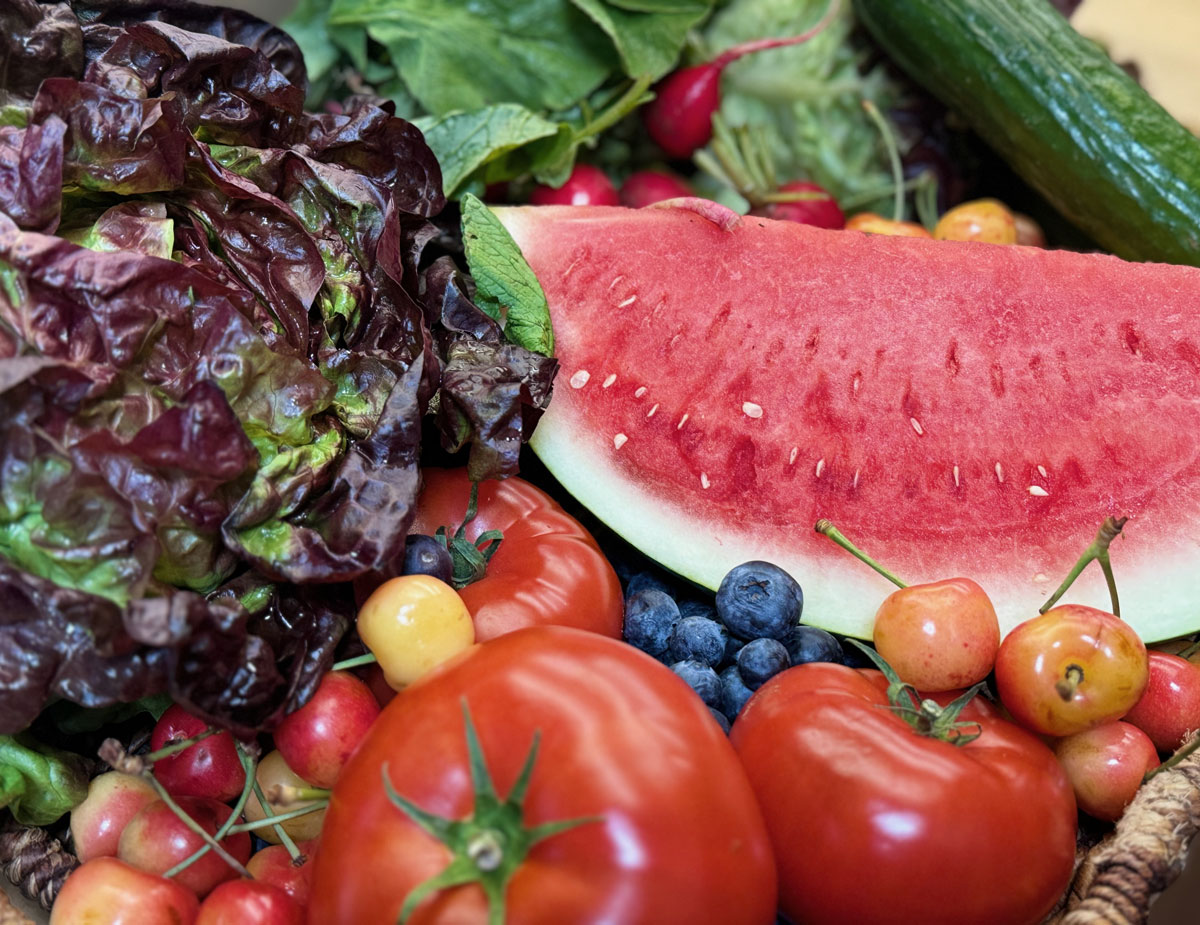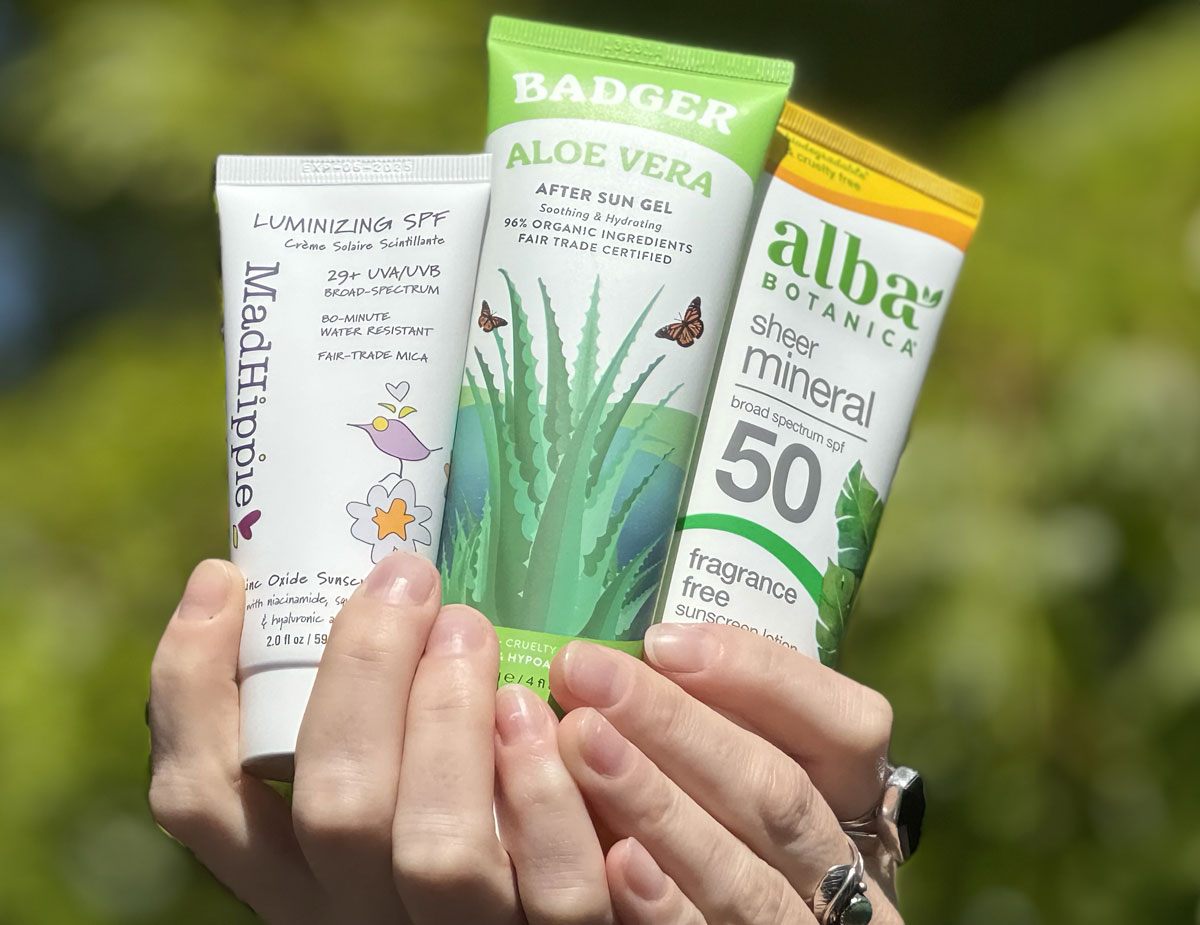At Market of Choice, we like to keep up with trends in nutrition to ensure we’re providing the foods our community needs to thrive. You’ve no doubt heard or read something about the Mediterranean Diet. No nutritional or health discussion would be on trend without it. Read on for our take on this popular diet, its benefits and advantages.

What is the Mediterranean Diet?
In 2024, and for the sixth straight year, the Mediterranean diet ranked best in the world for overall health and longevity. With a focus on plant-based foods, lean protein (over red meat), whole grains, and lots of healthy fats like extra virgin olive oil, the Mediterranean diet encourages a sustainable, well-rounded approach to eating rather than food group elimination like Keto or Paleo.
The health benefits of the Mediterranean diet include a reduced risk of heart disease, diabetes and cognitive decline. It’s also associated with healthy weight management, improved mood and an overall better quality of life.
In this blog post, we discuss simple ways to incorporate elements of this eating pattern into your daily lifestyle, its health benefits, and how Market of Choice can support your goals with healthy foods and recipes.
The basics
The goal of the Mediterranean plate is color and diversity of food with minimal processing. The majority of meals consist of locally sourced fresh fruits and vegetables in season and whole grains like brown rice, couscous and quinoa.
Fortunately, with the abundance of farms in Oregon, Market of Choice is able to offer the best in fresh, seasonal produce from reputable farms with our DIG Local program.
Snack wisely
When it comes to carbohydrates, complex is always best. White bread (heavily processed) is filled with empty calories and very little nutritional value; breads made from whole grains offer lasting energy and keep you feeling fuller longer. Choose whole-wheat bread made with locally sourced flour from our bakery for your morning toast or lunch-time sandwiches.
For mid-day snack cravings, choose organic nuts like almonds and cashews from the bulk food section.
Cook with extra virgin olive oil
A key element of nutrition is fats. Monounsaturated, like those found in olive oil, are healthy while saturated fats — found in butter and many processed vegetable oils are unhealthy. Replacing butter and cooking oils with extra virgin olive oil can help lower cholesterol in your blood. Try a drizzle of olive oil over cooked foods like fish or chicken to finish with flavor. Or, mix with balsamic vinegar to make a tasty dressing for salads, and dips. We love Sebastiano’s locally made olive oil, which you can find in the aisles of your local Market of Choice.
Spice things up
Along with offering a greater variety of flavors, spices offer loads of health benefits. Turmeric (that oddly rustic-colored root in the produce section) has been shown to reduce inflammation and boost metabolism. Cardamom and mint aid digestion and freshen breath. Sumac helps to balance blood sugar levels and gut microbiome.
Eat more fish
Fatty fish like salmon, sardines, tuna and mackerel are rich in healthy omega-3 fatty acids, which support heart and brain health. Lucky for us, Oregon’s coast offers an abundance of fresh, ethically sourced seafood, including salmon. And getting your hands on some is as easy as stopping by our Meat & Seafood department.
Check out our blog post on the Pescatarian Diet to learn more about the amazing health benefits of fish. Looking for the best way to cook it? Try this delicious and healthy salmon recipe from our chef team.
Don’t give up on dairy
Foods like cheese, yogurt and kefir are good sources of potassium which helps lower blood pressure, and they’re full of gut-healthy probiotics. Enjoying dairy products in moderation is part of a healthy eating pattern.
You can’t talk about dairy without talking about lactose too. If you find cow’s milk hard to stomach, consider goat’s milk. It contains lower levels of lactose, making it a better choice for people with an intolerance to dairy products.
One of the best in the goat biz is Portland Creamery, a local maker of premium goat cheese.
Savor every bite and every moment
It’s important to note that the Mediterranean diet is a lifestyle that’s not just about what you eat, but how you eat. Savoring every bite of delicious, mindfully prepared meals with good company — and maybe a few sips of red wine is a key part of this dietary model. This is because dining with others is good for your mental health and eating slowly allows your body time to identify signs of fullness so you’re less likely to overeat.
Health benefits of the Mediterranean diet
There are many benefits to this dietary approach, including:
- Lowered risk of cardiovascular disease
- Healthy body weight
- Healthy blood sugar, blood pressure, and cholesterol
- Lowered risk of metabolic syndrome
- Healthy balance of gut bacteria and other microorganisms
- Lowered risk of certain types of cancer
- Slowed decline of brain function as you age
- A longer, healthier life
Is the Mediterranean diet right for you?
Research shows that a well-rounded approach to eating is healthiest for your body and more sustainable in the long term. Start small with a few easy changes to your diet: incorporate whole grains. Lean on fresh produce. Bone up on healthy fats. Slow down and enjoy every bite. The Mediterranean diet just might be your go-to diet in no time.
Explore More Topics
Related Posts
- A Busy Person’s Guide to Staying Hydrated
Whether you’re an athlete or an office employee, chances are your lifestyle is fast-paced and on-the-go. Our modern way of living poses unique challenges to staying hydrated and healthy at any level of physical activity.
- Oregon’s Summer Harvest
It’s summer time in the Pacific Northwest which means sunnier days, warmer weather, and a time for exploring the fresh, delicious harvest that local farms have to offer.
- Your Guide to Natural Sun Care and After Sun Care Products
Our Whole Health experts answer the most common questions about sun care products and after sun care, including local Oregon-made brands.



